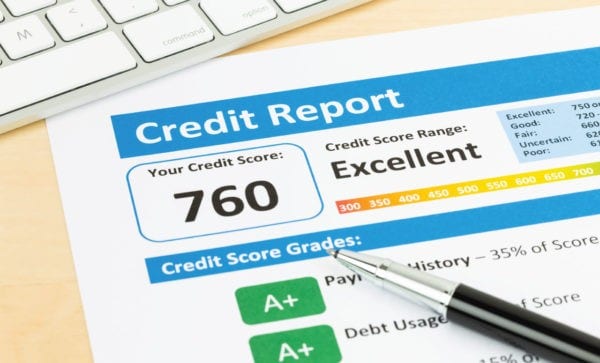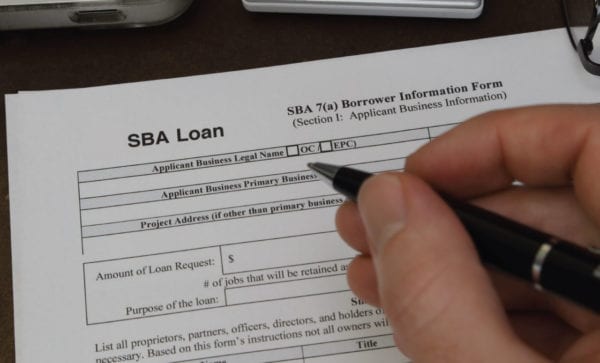Everyone deserves a second chance, even people with a criminal record. If you’ve paid your debt to society, and it’s always been your dream to own your own business, don’t let your past mistakes defer that dream any longer, or keep you from getting financial support.
It is possible for convicted felons to get a small business loan, and there are certainly no state or federal law prohibiting or mandating what type of business a felon can start once they’ve served their time.
People who have been convicted of crimes can get a business loan from the federal government. But there are any number of other great small business loan opportunities out there for people with a criminal record to choose from. It’s never too late to start over. Begin your search with this guide to the best small business loans for felons.
Convicted Felons Can Get a Small Business Loan
As we’ve established, it is possible for a convicted felon to get a business loan. Did you know that’s how Dave’s Killer Bread got started? Employment opportunities are limited for people with a criminal record, and for people who have served jail time. For these reasons and more, studies show entrepreneurship is a common path for reentry into society for formerly incarcerated individuals.
In this ranking, we’ll tell you where to begin if you have a criminal record and you’re interested in starting a business. We’ll also provide some tips and pointers to increase the odds your small business loan will be a success. Financial experts also weigh in, sharing their experience helping felons navigate the small business loan process. No one knows better than these experts how having a criminal record can make that process even more difficult.
But for convicted felons and those without a criminal record alike, a small business loan is only as good as its application, so let’s begin there.
What’s the Best Way to Get a Small Business Loan?

Getting a small business loan or grant isn’t easy for anyone. It takes a lot of work and careful preparation for a business loan application to be successful. Whether you have a criminal record or not, these simple tips will increase the odds that your application for a business loan will be successful.
Create a Thorough Business Plan

A business plan is required for most business loans, and frankly, a thorough and comprehensive business plan will only serve to make your enterprise a success. Your business plan may change (in fact, we can almost guarantee that it will). But nevertheless, a solid business plan is a crucial document, providing a roadmap for future success. So before applying for any small business loan, write a business plan and make sure it includes the following points:
- Personal information on the founders of the business, including a CV or resume for each person launching the enterprise, as well as a little bit of background information, focusing on anything relevant to the business or field you’ll work in.
- Describe the product or service your business will provide. Present a clear and accurate picture of what your business is about. This could include a description of the business location, and even a mission statement.
- Outline your target market. Even the greatest business idea won’t be successful if it can’t reach its market. In your business plan, let the lender know you see your target market clearly by describing your marketing strategy and analyzing your competitors.
- Financial projections. Let the lender know you’ve considered your estimated profit and loss for at least the next three to five years. Included with a financial projection could be additional information about any pre-existing loans or debts you might be carrying.
Check Your Credit Score

A poor credit score is perhaps even more of a deterrent than a criminal record when applying for a small business loan. The good news is, a prison record is not reflected on a credit report, according to David Reischer, Esq., Criminal Lawyer and CEO of LegalAdvice.com.
Since 2004, Reischer has been a practicing attorney in the areas of criminal law, real estate, and business transactions. Reischer goes on to say that, unfortunately, people who have a past in the criminal justice system have often made decisions or been put in situations that negatively impact their credit score.
“The primary reason is for late or non-payment of obligations due to being locked up,” Reischer says. A person in prison might also have legal fees or fines that appear as a result of incarceration, he adds. “Once in jail it is hard to make payments and manage personal finances, Reischer continues. “A missed or neglected credit card or mortgage payment that is reported 30 days late, then 60, then 90, can seriously damage a person’s credit score,” he says.
If someone is faced with a prison sentence, but is interested in starting a business once they’ve served their time, they can take steps to preserve their credit score, such as making arrangements to pay bills and manage finances before they even enter prison, with the help of a trusted financial manager or friend.
Understandably, not everybody has the financial resources or wherewithal in the middle of such a stressful and chaotic situation as being jailed to worry about their credit report, Reischer adds. “As such, a person will need to rework to rebuild their credit scores upon release,” he says.
After being released from prison, it can take time to rebuild your credit score, but there’s always hope. The first step is to understand what your credit score means.
A credit score of 700 or higher will help open the door to many of the top-tier business loans. Don’t despair if you’re faced with a credit score that’s lower than that, however: plenty of good business loans are available to people with credit scores less than 700.
Aim for a credit score of at least 600. When working on your credit score, 600 should be considered a good goal to strive for in order to qualify for a business loan. Generally speaking, focus on the following basic goals:
- Pay back debt
- Stay on top of your bills
For further advice on improving your credit score, consult with a local nonprofit. Some even offer free debt counseling for felons.
Don’t Forget to Network

Networking and forming strong connections within the local business community or within the larger industry in question can not only help you secure a small business loan, it can also provide valuable mentorship opportunities.
Being mentored by an experienced business owner can clue you in to loan, grant, or other funding opportunities for your business that you might not have previously considered. That mentor may also act as a consignee or reference on your loan application, helping improve the odds your loan application will be approved.
With these pointers in mind, it’s time to apply for your first business loan or grant. Which one is best for felons? That information, and a whole lot more, is coming up next.
The Best Small Business Loans for Felons
Business funding sources for felons and formerly incarcerated individuals fall into the following loan and grant opportunities:
SBA Microloans

People with felony convictions are precluded from many kinds of Small Business Administration (SBA) loans, but under most circumstances, people with a criminal record do qualify for the microloan Program from the SBA. For people with a criminal record seeking a funding source for their new business, this is often the best place to start. However, you’ll generally need some form of collateral to obtain a microloan from the SBA.
These loans are typically available through intermediary nonprofits and community organizations. They are secured by the Federal Government. Business training and certain kinds of planning are often required to qualify for a load of this sort. Other application requirements may vary, depending on the requirements of the intermediary lender.
Pros of Starting a Business Through SBA Microloans:
According to the SBA, microloans can reach amounts of up to $50,000, but the average loan is for about $13,000. Once funds from an SBA microloan are secured, they can be used for the following purposes:
- Working capital
- Supplies, merchandise, furniture, and fixtures
- Equipment and machinery
Cons of Starting a Business Through SBA Microloans:
It’s also important to note what SBA microloans can’t be used for: A microloan from the SBA can’t be used to purchase real estate, or to pay off an existing debt. Like any loan, funds from the SBA must be paid back. The maximum repayment term for an SBA microloan is six years. Microloan repayment terms vary, depending on the following factors:
- The purpose for which the business intends to use the funds
- The particular financial needs of the borrower
- Special requirements as determined by the intermediary lenders
- The amount of the loan
To find an SBA-approved intermediary lender, go to SBA.gov.
Crowdfunding

Crowdfounding platforms such as Kickstarter, GoFundMe, and IndieGogo have become increasingly popular ways to raise capital for all sorts of projects, including small businesses.
Oculus is just one example of a successful business that got its start this way. Many others, though, have tried and failed to raise the funds required to start their business, putting aspiring entrepreneurs back at square one.
The best part about pursuing a crowdfunding campaign as a means to fund your small business is that it makes absolutely no difference if you have a felony conviction on your record or not.
It’s also possible your campaign could go viral, and you could raise more funds than necessary to start your business.
Crowdfunding is not a sure thing, though. Here are some additional pros and cons.
Pros of Starting a Business Through Crowdfunding:
Crowdfunding is also a form of market testing. A successful crowdfunding campaign not only raises the funds necessary to launch a business, it proves that there is demand and solid marketplace interest in whatever service or product your business will provide.
A successful crowdfunding campaign, in others words, validates your business. This can be useful when pitching your business to investors down the line. It also helps remove some of the natural doubt and uncertainty that can hamper business owners when they’re just starting out.
Crowdfunding also helps you network. Using crowdfunding as a means to launch your business links you into a community of like-minded individuals who one day may be more than just customers: they could possibly become partners, colleagues, or investors. It’s impossible to overstate the importance of networking for small business owners.
All the equity is yours! Crowdfunding usually involves some kind of give-back to those who participate in your campaign: that can be as simple as T-shirts and merchandise, or there could be some kind of financial reward.
But people who give to a crowdfunding campaign are not investors in your company. Once the campaign terms that you agreed upon at the outset are satisfied, you get to keep all the equity (and profit!) your venture may generate.
Cons of Starting a Business Through Crowdfunding:
As previously mentioned, funding a business through a crowdfunding platform is not a certain proposition. There are many variables in play in a successful crowdfunding campaign–not least of which is a great deal of luck.
Here are some additional drawbacks to consider.
Crowdfunding is time-consuming and costs money. Aspiring business owners who turn to crowdfunding as a means to fund their business must invest time in planning, launching, and maintaining their campaign.
This can involve planning and producing the collateral involved in the campaign for those who participate. Successful campaigns may also require a product prototype, video production, persuasively written copy, and more.
It can also cost several thousand dollars to run a crowdfunding campaign in and of itself, and there’s no guarantee of success.
Crowdfunding may spoil your idea! Unless your product is already protected by a patent or copyright, the very act of launching a crowdfunding campaign poses the risk an idea could be stolen.
It’s unlikely someone could steal an idea and bring a product to market faster than whomever launched the campaign. If it should happen, though, the legal expense of fighting the competitor would be unmanageable for a business that’s just starting out. Without a copyright or patent, options may be limited.
Family and Friends Loan

Another possible funding source for those with a criminal record is through a personal loan from family and friends. Again, this is not a sure-fire thing, but nothing about starting a business is for certain.
An advantage of a friends and family loan is the barriers are low: there’s usually not much of an application process, if any, and eligibility requirements, and payback terms can be established between the private parties in question.
It’s generally cautioned not to do business with friends and family, however. Here’s why:
Pros of Starting a Business Through Loans from Friends and Family:
There are several advantages to accepting a loan from friends and family. Primarily, they believe in you and are invested in your success. There isn’t as much red tape, so to speak, and the loan connection is personal and accessible.
In addition, family and friends know you better than any bank and would likely be able to offer not only financial support, but also advice regarding your strengths and weaknesses as a business owner.
Cons of Starting a Business Through Loans from Friends and Family:
Some drawbacks to financing your small business through friends and family can include the following:
Friends and family may not be impartial. Prospective business owners who present their business plan to friends and family in order to secure financing may not end up receiving the most honest feedback about their business concept. Friends and family may not feel like they can be as frank as a third-party lender, filling an aspiring entrepreneur with false hope that their business concept will be a success.
If the business fails, there’s risk of losing more than just money. There are no guarantees in business. Most new companies fail. If financing is secured through friends and family and the business ends up not being a success, or if financial projections don’t come to pass and the money can’t be paid back on time or in full, a business owner runs the risk of ruining a lot more than their credit. Some of the most important relationships in their life may be soured as a result.
None of that’s to say that those launching a business shouldn’t seek funding through friends and family. Here are some tips and pointers to help make this approach a success.
Steps to Avoid Drawbacks While Accepting Loans from Friends and Family
Put it in writing and be professional. Just because the pitch is to an aunt or uncle instead of an anonymous banker on the other side of a desk, it doesn’t mean you should be any less professional. Draw up a complete and thorough business plan. Include all the crucial information like a market analysis, a marketing plan, financial projections, and profit estimates.
Most of all, if you reach a financial agreement with a friend or family member, put it in writing. Be sure to include how and when the money will be repaid, and at what interest rate.
Also, what role will that family member play in the operation of the business? Will they be an active or silent partner? Do they receive any equity in the business in return for their investment? Do they have a say in the decision-making process?
Setting these parameters as clearly as possible from the outset will help maintain valuable personal relationships beyond any negative eventuality the business may encounter.
In addition to what’s already been mentioned, when approaching a friend or family member for business financing, it’s important to allow them plenty of time and space to make their decision.
Don’t sell your pitch too hard or expect a quick decision. A friend or family member should always be made to feel comfortable saying no. A personal relationship of that sort is always more valuable than a business loan.
Online Lenders

A new breed of lender, sometimes called a marketplace lender or an alternative lender, has revolutionized the financing market for small businesses.
These services offer easy access to funds for individuals with all sorts of backgrounds, including those with a criminal record. These services can be great sources of funding for small business owners with a felony record, but they are unregulated and come with their own set of advantages and disadvantages.
Pros of Starting a Business Through an Online Lender
Online loans are easy to get. All a small business owner has to do to secure an online loan is visit an online loan website, compare offers, and accept a quote. Then, simply fill out the application and wait for your money, which through many online lenders arrives in about a day. Best of all, you can apply for an online loan any time of the day or night, as the internet is open 24/7. There’s also no need to put on a suit and tie.
Numerous lenders don’t have to access your credit report. Some people fail to realize that numerous credit checks can actually negatively affect your credit score. A poor credit score can already be an issue for people with a criminal record.
Using an online lender means there’s only one credit check. This minimizes the unfortunate side effect of applying for a line of credit. And although there’s only one credit check, you’re often able to compare several loan offers from a variety of sources.
Cons of Starting a Business Through an Online Lender
The interest rates are higher. The first word of caution about accepting a loan from an online lender is that interest rates tend to be higher than those of traditional loans. Many online lending businesses are quite new, and in turn, many go out of business relatively quickly. This is a hassle for those who are carrying a loan from that lender.
None of this is to say that online lending is a bad choice for people with a criminal record seeking funding for their small business. Online lending is more than just a trend, it’s a wave of the future for business funding of all sorts. It’s important to be aware of the risks and rewards of online lending. Nevertheless, many people who accept small business loans from online lenders go on to be very successful.
Grants

Loans are not the only support available for people with a felony conviction who are trying to start a business. While perhaps not directly related to starting a business, education can launch many entrepreneurs off on the right foot.
People with felony convictions are eligible for loans and grants from both the Federal Government and from private institutions.
Federal Education Loans and Grants
While a grant from the Federal Government for continuing education won’t fund your business directly, it can provide the educational opportunities you need to be successful as a business owner. That education ranges from vocational training to simple business skills. Best of all, a felony conviction does not restrict an applicant from loans and grants of this nature, so long as you can demonstrate financial need.
Another excellent resource is Grants.gov. The site may not include many grants specifically for felons interested in starting a small business. Instead, it’s a great resource for finding a grant that’s related to the kind of business you’re interested in starting. Or perhaps, for people with a specific nationality, heritage, or other personal interest or defining characteristic.
Other Opportunities

There are additional resources for formerly incarcerated individuals seeking a second chance. In addition to what’s listed below, check for resources from your correctional institution, local Chambers of Commerce, or The Association of Small Business Development Centers (SBDC).
The SBDC is a nationwide network of nonprofits, most often associated with colleges and universities, that helps thousands of small business owners and those interested in launching their business get started.
Additional support for small business owners of all sorts, including those with felony convictions, can be found through SCORE. With over 300 chapters nationwide, SCORE offers nascent entrepreneurs online courses, templates, articles, and webinars, among other resources. It also offers the support of business professionals, entrepreneurs, and former business owners acting as mentors. These mentors provide free consulting and advice to all sorts of new business owners.
Those with a criminal record seeking support in the world of business can also contact Inmate to Entrepreneurs. Launched by Sageworks, Inmate to Entrepreneur is a nonprofit community outreach program providing former inmates the information they need to start over, whether that means starting a business, or some other way of productively reentering society. Additional tools and resources available from Inmates to Entrepreneurs include online videos, among many other kinds of valuable information.
There are a wide variety of other inmate reentry programs and assistance services across the country, helping reduce recidivism rates through job skills training and housing assistance. That can mean short-term housing, mentorship and more. A complete list of such resources is available through HelpforFelons.org.

